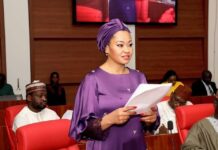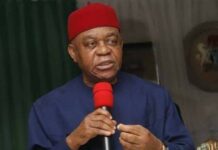By Jeph Ajobaju, Chief Copy Editor
Nigeria has taken a new $3.35 billion loan from the International Monetary Fund (IMF), adding to its $87.239 billion public debt by the first quarter of 2021 (Q1 2021) owed by federal and states and the Federal Capital Territory (FCT).
The IMF approved $3.35 billion for Nigeria as part of a “historic general allocation” of Special Drawing Rights (SDRs) of about SDR456 billion, an equivalent of $650 billion.
The lender said Nigeria will get $3.35 billion out of the funds to raise its external reserves and boost global liquidity at a time when the world is grappling with coronavirus.
Nigeria’s foreign reserves declined from $35.37 billion in Q4 December 2020 $33.32 billion Q2 2021, a 5.8 per cent dip in six months.
This translated to a drop of about $2.1 billion, according to data from the Central Bank of Nigeria (CBN).
The country’s debt to the World Bank and the African Development Bank (AfDB) alone rose from $7.14 billion to $14.35 billion between June 30, 2015 and March 31, 2021, data from the Debt Management Office (DMO) shows.
This means that under Muhammadu Buhari, Nigeria’s debt to these two institutions rose by $7.11 billion, an increase of 98.48 per cent.
Historic decision of the IMF
“This is a historic decision – the largest SDR allocation in the history of the IMF and a shot in the arm for the global economy at a time of unprecedented crisis,” IMF Managing Director Kristalina Georgieva said in a statement on the latest loan.
“The SDR allocation will benefit all members, address the long-term global need for reserves, build confidence, and foster the resilience and stability of the global economy.
“It will particularly help our most vulnerable countries struggling to cope with the impact of the COVID-19 crisis.”
Georgieva promised that the IMF would continue to engage actively with its membership to identify viable options for voluntary channelling of SDRs from wealthier to poorer, and more vulnerable member countries to support their pandemic recovery and achieve resilient and sustainable growth.
The general allocation of SDRs will become effective on August 23 and the newly created SDRs will be credited to IMF member countries in proportion to their existing quotas in the Fund.
Per reporting by Nairametrics, about $275 billion (about SDR 193 billion) of the new allocation will go to emerging markets and developing countries, including low-income countries.
One key option that members with strong external positions can adopt is for them to voluntarily channel part of their SDRs to scale up lending for low-income countries through the IMF’s Poverty Reduction and Growth Trust (PRGT).
The IMF said concessional support through the PRGT is currently interest-free, and that it is exploring other options to help poorer and more vulnerable countries in their recovery efforts.
A new Resilience and Sustainability Trust could be considered to facilitate more resilient and sustainable growth in the medium term, the IMF added.
Purpose of SDRs
Nairametrics explains that SDRs are supplementary foreign exchange reserve assets defined and maintained by the IMF to supplement the official reserves of its member countries.
SDRs are units of account for the IMF, not a currency per se. They represent a claim to currency held by IMF member countries for which they may be exchanged.
The amount allocated to Nigeria is as a result of the exchange rate of reference which is 0.702283 SDR to a dollar as of July 1, 2021. Nigeria has 2.4545 billion SDRs.
In May 2020, the IMF disbursed $3.4 billion, one of the largest emergency supports, as Rapid Financing Instrument (RFI) to Nigeria.
Nigeria requested the loan as fiscal support to mitigate the impact of the pandemic on its economy amid dwindling revenue and an economic crisis following the crash of crude oil prices.
Nigeria’s debt rises by N20.8tr in 5 years. Servicing it costs N10.26tr
Nigeria’s overall debt rose by N20.8 trillion to N32.92 trillion between July 2015 and December 2020, and to N33.11 trillion in Q1 2021, according to DMO data, published by The PUNCH.
Servicing the debt cost N1.8 trillion between January and May this year, creating concern for financial experts who note that national debt has ballooned under the watch of Buhari with little to show for it.
Buhari became President on May 29, 2015 and has since served six years, with two years left in his second and final term – if does not cling to power beyond 2023 by hook or by crook.
Nigeria’s total debt by June 30, 2015 was N12.12 trillion; it rose to N32.92 trillion by December 31, 2020. Meaning the debt rose by N20.8 trillion or 171.61 per cent in five and a half years.
Of the total N32.92 trillion debt, the federal government piled up N26.91 trillion (81.74 per cent), the 36 states and the Federal Capital Territory Administration (FCTA) have N6.01 trillion (18.26 per cent).
Domestic debt accounts for N20.21 trillion (61.39 per cent), external debt N12.71 trillion (38.61 per cent).
















